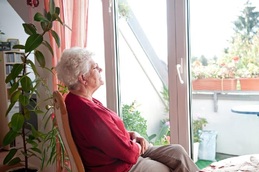Wales care regulatory body targets more effective data collection

Older women living in their own homes are the most common victims of abuse in Wales, according to the latest research into adult protection monitoring.
The ‘Adult Protection Monitoring Report 2010-12’ confirmed previous research from the Deprivation of Liberty Standards, and concluded that the largest proportion of alleged victims of abuse live in their own homes, although 32 per cent are alleged to have occurred in a care home.
Overall, figures showed a 14 per cent fall in referrals since 2009-10, however, the Care and Social Services Inspectorate Wales (CSSIW) admits that better qualitative data remains essential if adult safeguarding issues are to be effectively monitored and acted upon.
As with other areas of social and residential care throughout Wales, consistency remains a major issue, with improving data collection throughout future developments identified as essential by the regulatory body.
Chief inspector Imelda Richardson comments: “Protecting people who are vulnerable is an absolute priority. Providers of services are responsible for monitoring the quality of the services they provide to make sure that people using them are safe and CSSIW is committed to tackling poor quality services and care.
“Themes arising in both reports should give all concerned pause for thought. In the year ahead CSSIW will undertake further work to better understand the factors underpinning these themes. The challenge for all agencies continues to be the need to work together to consistently deliver a rigorous response to concerns about abuse”.
Kate Chamberlain, chief inspector of the Healthcare Inspectorate Wales (HIW), who joint published the report, discusses the procedures: “The safeguards are centred on the human rights of individuals and are there to ensure that a decision to deprive someone of their liberty is made through the correct process. The safeguards also ensure that the carers and relatives of an individual who is subject to them can be supported to challenge such decisions if necessary.
“Mental incapacity can occur in a number of circumstances and this is why the safeguards are important. They aim to protect individuals and provide medical and care professionals with assistance in deciding if depriving someone of their liberty is the only safe way to care for them.
“In the year ahead we look forward to working with CSSIW as we further develop our work around the safeguards.”
Latest News
 29-Jul-24
Dementia Bus gives carehome.co.uk staff insight into life with dementia
29-Jul-24
Dementia Bus gives carehome.co.uk staff insight into life with dementia
 01-Mar-24
Find out the top care homes in 2024
01-Mar-24
Find out the top care homes in 2024
 21-Mar-23
UK's top care homes in 2023 revealed
21-Mar-23
UK's top care homes in 2023 revealed
 03-Jan-23
carehome.co.uk launches free care helpline
03-Jan-23
carehome.co.uk launches free care helpline
 13-Dec-22
5 mins with Emily Whitehurst, chief operating officer for Constantia Healthcare
13-Dec-22
5 mins with Emily Whitehurst, chief operating officer for Constantia Healthcare